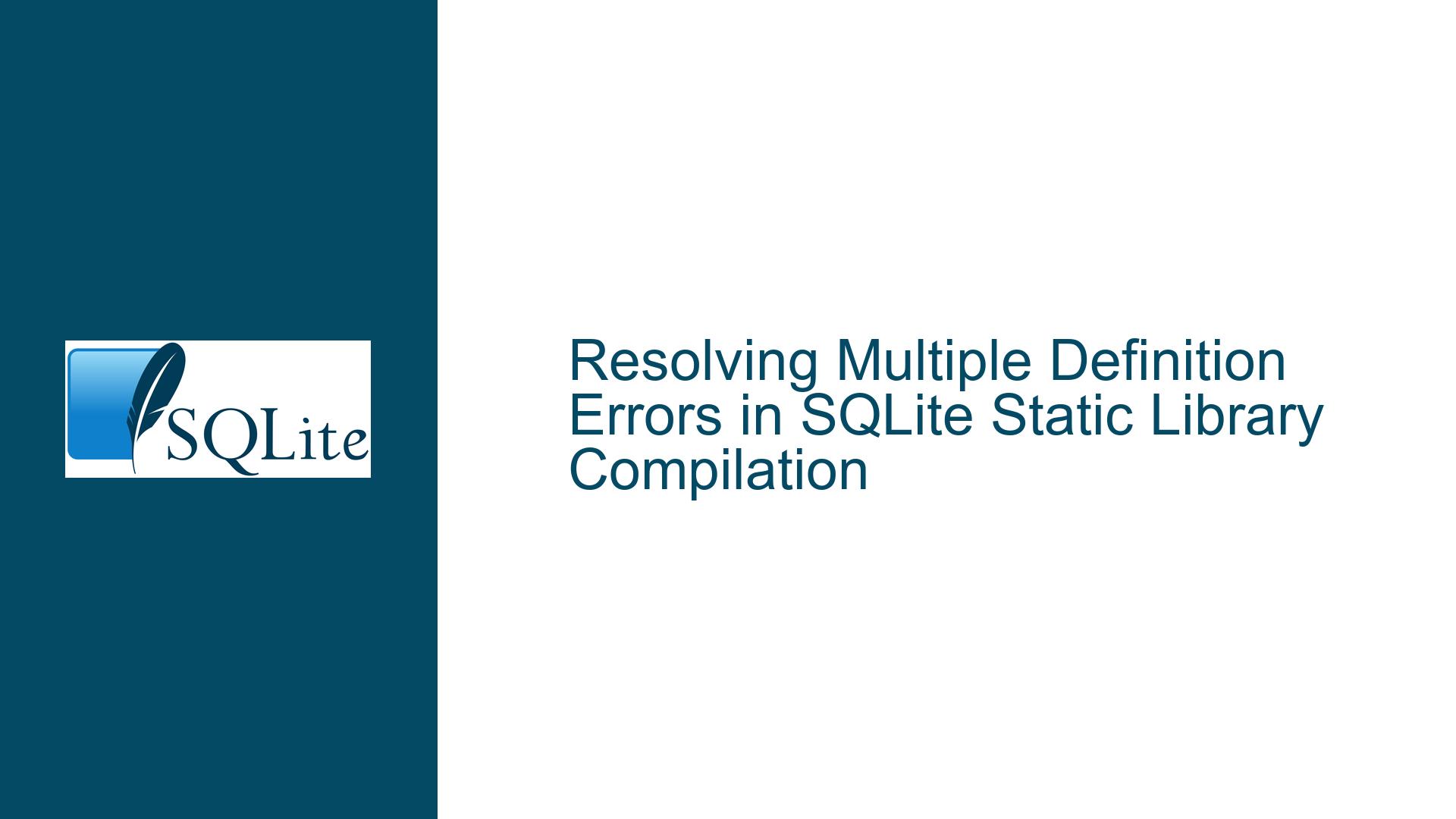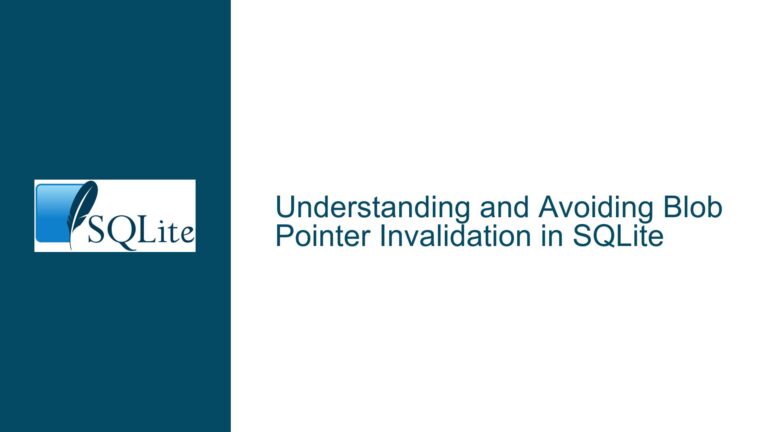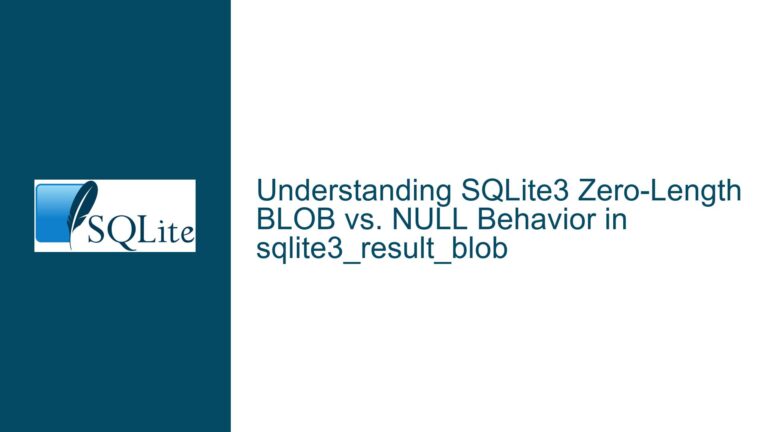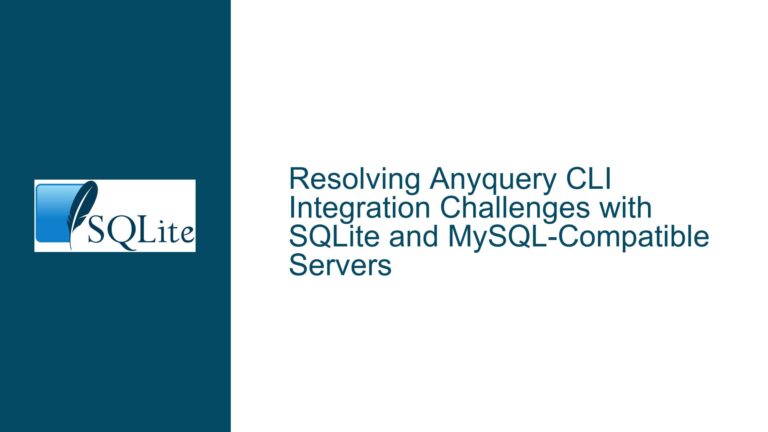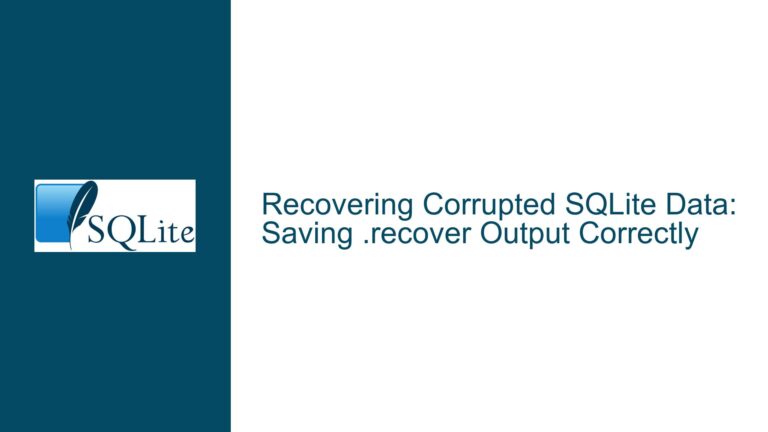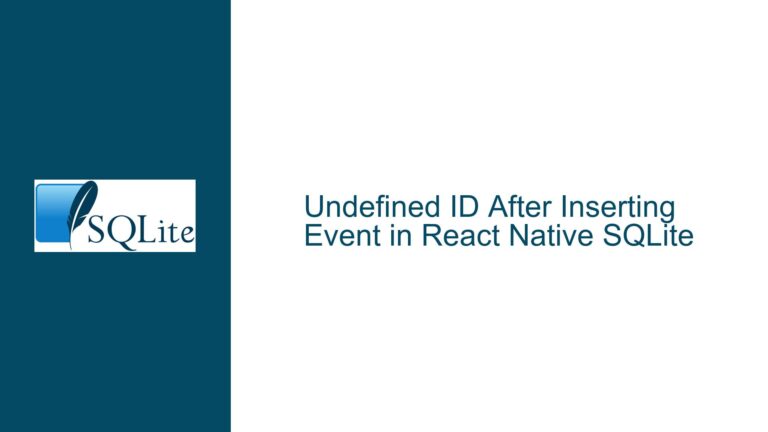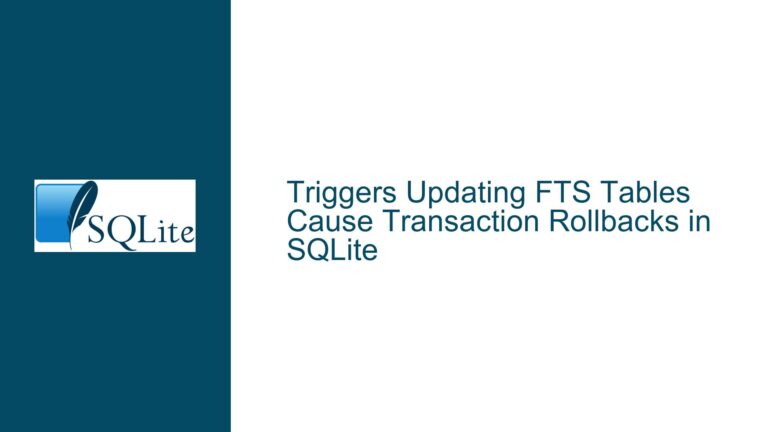Resolving Multiple Definition Errors in SQLite Static Library Compilation
Multiple Definition Errors During Static Library Compilation
When attempting to compile a static library for SQLite using the source files sqlite3.c and shell.c, a series of multiple definition errors can occur. These errors typically manifest during the linking phase of the compilation process, where the linker encounters duplicate symbols across different object files. The errors are often related to symbols such as WinMainCRTStartup, mainCRTStartup, atexit, and other runtime initialization functions. These symbols are crucial for the startup and shutdown sequences of C programs, particularly in environments like MinGW on Windows.
The core issue arises from the inclusion of shell.c in the static library creation process. The shell.c file is designed to be a standalone program, specifically the SQLite command-line interface (CLI). When compiled into a static library alongside sqlite3.c, it introduces duplicate definitions of symbols that are already defined in the C runtime library (crt2.o and crtbegin.o). This duplication confuses the linker, leading to the multiple definition errors.
The errors are not limited to just the startup symbols. They also include references to various runtime support functions and data structures, such as __gcc_register_frame, __gcc_deregister_frame, and __mingw_winmain_nShowCmd. These symbols are part of the GCC and MinGW runtime environments, and their duplication indicates a fundamental misconfiguration in the library creation process.
Inclusion of Standalone Shell Code in Static Library
The primary cause of the multiple definition errors is the inclusion of the shell.c file in the static library. The shell.c file is intended to be compiled as a standalone executable, not as part of a library. When shell.c is compiled into an object file and included in the static library, it brings with it a set of symbols that are already defined in the C runtime library. These symbols include the entry point for the program (main), as well as various initialization and cleanup routines.
The shell.c file contains a main function, which is the entry point for the SQLite CLI. When this object file is included in the static library, the main function is also included, leading to a conflict with the main function in the user’s application code. This is why the linker reports a multiple definition of main when attempting to link the static library with the user’s code.
Additionally, the shell.c file includes various runtime support functions that are part of the MinGW and GCC runtime environments. These functions are already defined in the C runtime library, and their inclusion in the static library leads to duplicate definitions. This is particularly problematic for functions like atexit, which is used to register functions to be called at program exit, and __gcc_register_frame, which is used for exception handling.
The inclusion of shell.c in the static library also introduces dependencies on various runtime data structures, such as __native_startup_state and mingw_app_type. These data structures are part of the MinGW runtime environment and are already defined in the C runtime library. Their inclusion in the static library leads to duplicate definitions, causing the linker to fail.
Correcting Object File Creation and Library Compilation
To resolve the multiple definition errors, the shell.c file should be excluded from the static library creation process. The static library should only include the object file generated from sqlite3.c. This ensures that the library contains only the SQLite database engine code, without any conflicting symbols from the standalone CLI.
The correct steps to create the static library are as follows:
Compile
sqlite3.cinto an object file: Use the-cflag withgccto compilesqlite3.cinto an object file without linking. This generatessqlite3.o, which contains the compiled code for the SQLite database engine.gcc -c sqlite3.c -o sqlite3.oCreate the static library: Use the
artool to create the static library from thesqlite3.oobject file. Thercsflags tellarto replace existing files in the archive, create the archive if it doesn’t exist, and add an index to the archive.ar rcs libsqlite3.a sqlite3.oCompile the user’s application: When compiling the user’s application, link against the newly created static library. Ensure that the
sqlite3.hheader file is included in the user’s source code.gcc my_c_code.c -o my_c_code -L. -lsqlite3
By following these steps, the static library will contain only the SQLite database engine code, avoiding the inclusion of conflicting symbols from shell.c. This resolves the multiple definition errors and allows the user’s application to link successfully against the static library.
If the user also needs to compile the SQLite CLI, they should do so separately, without including it in the static library. The shell.c file can be compiled into a standalone executable using the following command:
gcc shell.c sqlite3.o -o sqlite3
This approach ensures that the SQLite CLI and the static library are built independently, avoiding any conflicts between their respective symbols.
In summary, the multiple definition errors during static library compilation are caused by the inclusion of the shell.c file, which is intended to be a standalone program. By excluding shell.c from the static library and following the correct compilation steps, these errors can be resolved, allowing the user to successfully create and use a static library for SQLite.
